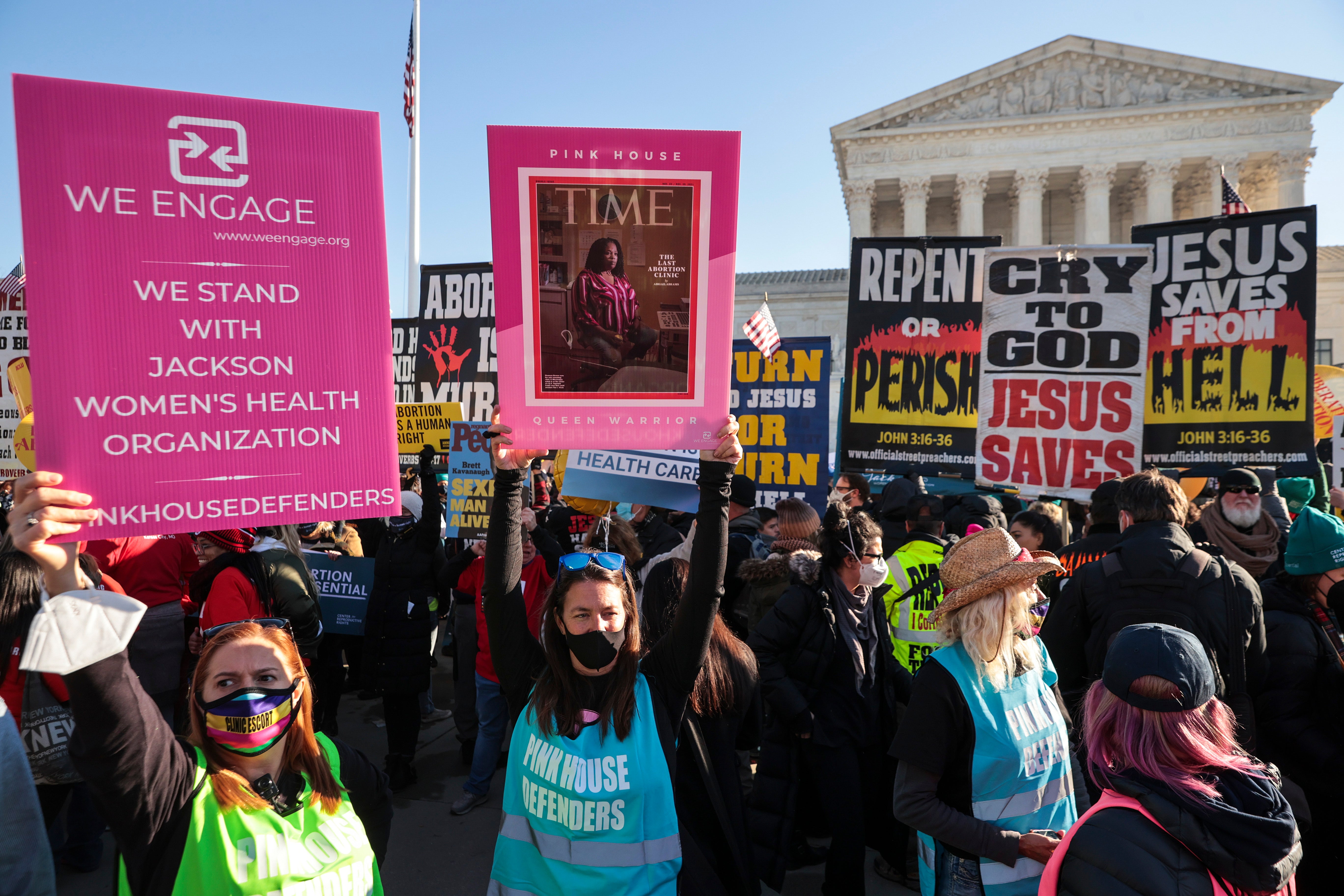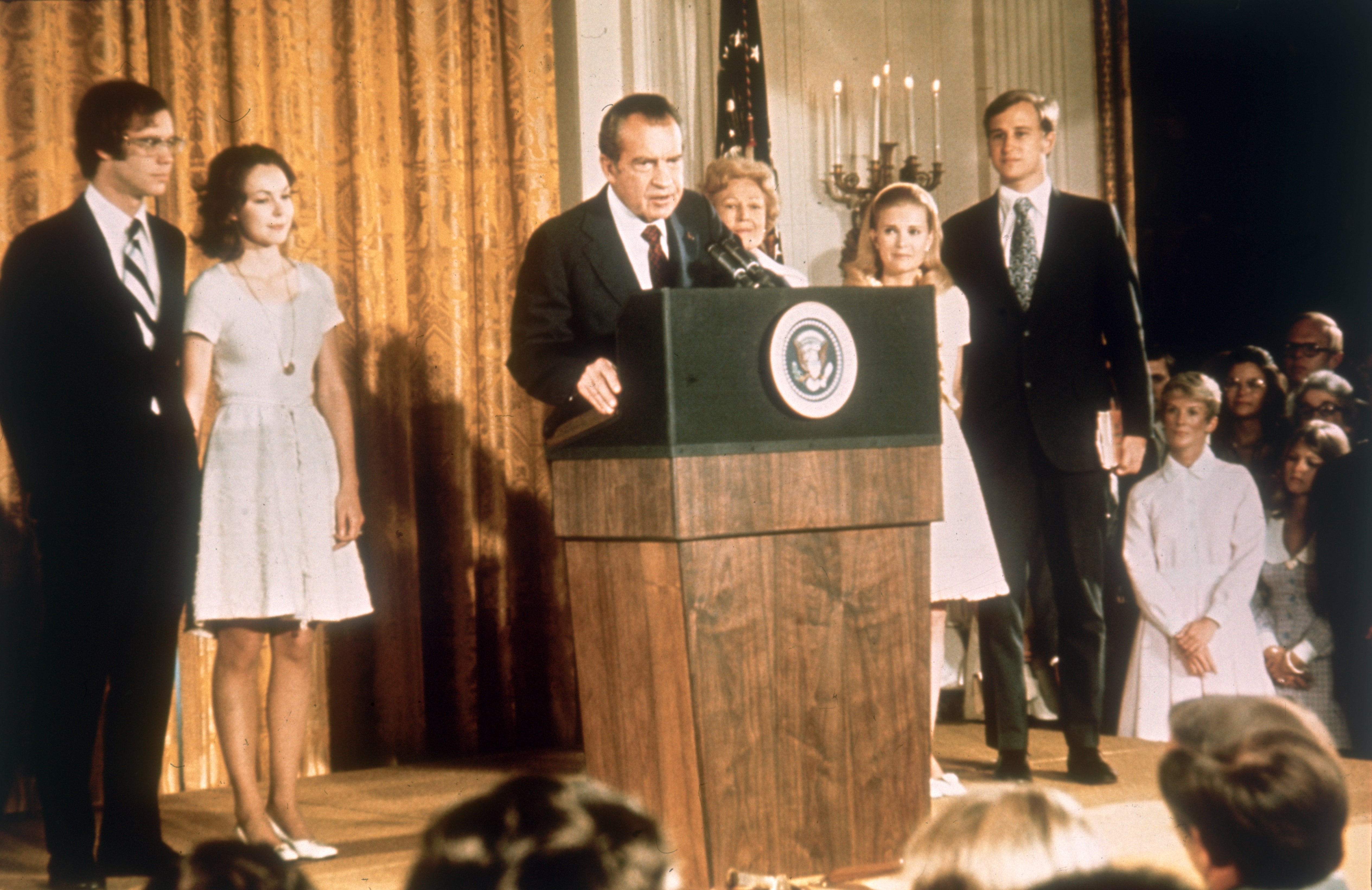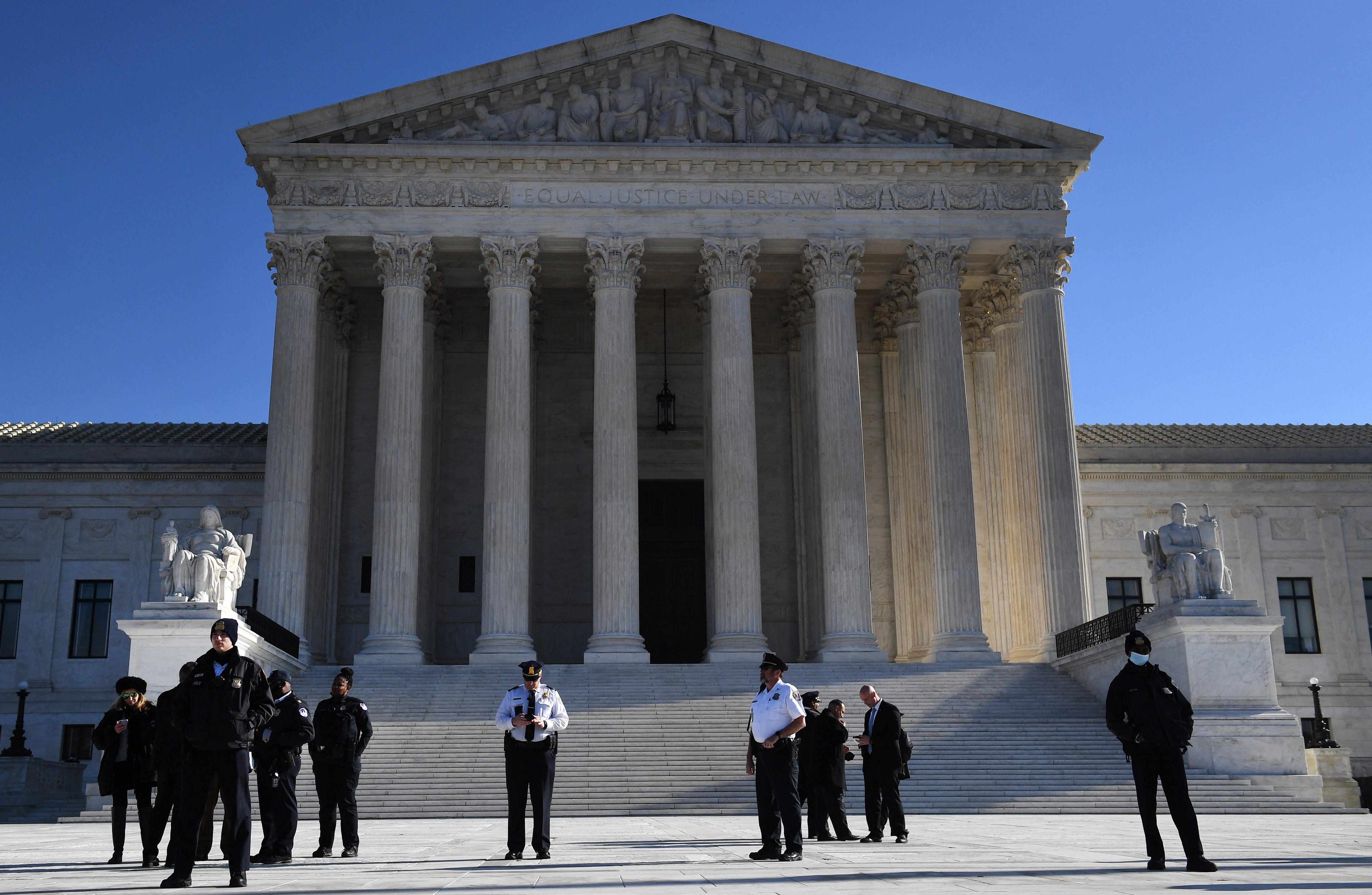How did America’s right wing turn abortion into such a toxic and divisive issue?
Richard Nixon supported abortion but today only three Republican legislators elected to Washington DC are pro-choice, writes Andrew Buncombe


The words championing reproductive rights for women could not have been more plainly spoken.
“It is my view that no American woman should be denied access to family planning assistance because of her economic condition,” they read.
“I believe we should establish as a national goal, the provision of adequate family planning services within the next five years to all those who want them but cannot afford them.”
The year was 1969 and the writer of those words, contained in a letter to Congress, was President Richard Nixon, urging legislators to back a bill creating a national family planning plan.
Nixon was many things, a racist and a crook, and is shorthand now for unpresidential behaviour. But in 1970, as a Republican president, he signed into law what became known as the Title X Family Planning Programme, the lone, but still surviving, federal system to provide women with comprehensive family planning services.
At the the United Nations, his UN ambassador, a certain George HW Bush, nicknamed “rubbers” because of his enthusiasm for family planning, spearheaded efforts to transform Nixon’s plan into a global one.
For both historians and reproductive rights campaigners, it can often feel bewildering to fast-forward a little over half a century, where a woman’s right to a legal abortion in the United States has rarely appeared more imperiled.
As the nation’s highest court, currently with a clear 6-3 conservative majority, heard arguments in a case that could result in the overturn of the 1973 Roe v Wade ruling that found a constitutional right to abortion, they reflected that today just three Republicans legislators elected to one of the houses of Congress officially support abortion.
All three of them are senators, and all three are women – Susan Collins of Massachusetts, Alaska’s Lisa Murkowski, and Shelley Moore Capito of West Virginia.
And activists question whether the three of them, in particular Ms Collins, deserve such a tag.
The senator recently suggested she would vote against a Democratic bill, the Women’s Health Protection Act, which has been passed by the House of Representatives and which would defend a women’s right to abortion, amid the flurry of moves being being taken at a state level, in places such as Texas, Florida and Mississippi, to not only restrict access, but criminally penalise doctors and providers. Collins told the Los Angeles Times she found the Democratic bill to be “extreme”.
For pro-choice activists, today’s situation is all the more frustrating because for the past 50 years, a clear majority of Americans has said they believe abortion should be legally available, even if some believe there should be some restrictions.
Recent polling by the Pew Research Centre suggests 59 per cent believe abortion should be legal in all or most cases.
“Abortion has long been a contentious issue in the United States, and it is one that sharply divides Americans along partisan, ideological and religious lines,” writes research associate Hannah Hartig.
“Today, a 59 per cent majority of US adults say abortion should be legal in all or most cases, while 39 per cent think abortion should be illegal in all or most cases. These views are relatively unchanged in the past few years. The latest survey, conducted between 5-11 April, finds deep disagreement between – and within – the parties over abortion. In fact, the partisan divide on abortion is far wider than it was two decades ago.”

What has happened?
As Hartig alludes to, while overall opinion about abortion has changed little, being stridently anti-abortion has become an increasingly important part of the Republican Party’s identity. This has taken place for two symbiotic reasons: a willingness among evangelical and born-again Christians to take on a political role, and readiness among the Republican establishment to – some would say cynically – tap into that support.
The move started in the aftermath of the passage of Roe, as activists such as Paul Weyrich and the pastor Jerry Falwell saw opposition to abortion as a way to rally Christians as a political force to try and prevent the re-election of Democrat Jimmy Carter, ironically himself a born-again Baptist who is now aged 97 and who until very recently delivered sermons at his church in Plains, Georgia. (Some have argued that the real motivation was less about stopping abortions than it was maintaining segregated schools.)
In his 2005 book Building Dynamic Faith, Falwell, who with the tele-evangelist Pat Robinson became leaders of a group known as the Moral Majority, wrote that he read of the Roe ruling in the 23 January 1973 edition of the Lynchburg News.
“The Supreme Court had just made a decision by a seven-to-two margin that would legalise the killing of millions of unborn children,” Falwell wrote. “I sat there staring at the Roe v Wade story growing more and more fearful of the consequences of the Supreme Court’s act and wondering why so few voices had been raised against it.”
The late Falwell, whose son Jerry Falwell Jr supported Donald Trump but was forced to resign from the Christian college founded by his father following an alleged scandal denied by Falwell Jr, decided he needed to act.
He and others threw their support behind Ronald Reagan, who changed the stance he had taken supporting abortion as governor of California, and with the help of the votes of two-thirds of evangelicals, defeated Carter in 1980. It marked the start of a new era for Republicans and the end of a period in American political life, when support for abortion was bipartisan.

Jon O’Brien, a longtime leader in the campaign for reproductive rights in the US, says political parties of all types look for an issue “that can galvanise voters that can get the vote”. For Scottish Protestants in the 1800s, the issue of temperance was used to secure votes of members of the church.
O’Brien, a former president of the pro-choice group Catholics for Choice, says in the 1970s, Republicans looking for an issue seized on the teaching of sex education in US schools and encouraged outraged parents to run for school boards and other offices.
A previously politically uninvolved constituency rapidly became energised and organised. From schools boards, says O’Brien, religious conservatives ran for other offices.
“As they took over more offices, they took over control of the Republican platform,” he says, speaking from Washington DC.
Ann Stone, the founder of a Republican political action group that supports abortion, Republicans for Choice, laments that the current position of her party was not always so.
She says the politician who first pushed for opposition to abortion to be part of the party’s platform was Bob Dole, who in 1974 was running in a tight re-election race against a Democratic congressman, Dr Bill Roy. Dole accused Roy of performing “abortions on demand” and used a campaign leaflet showing discarded foetuses in garbage cans. (The issue would come back to haunt Dole when when he ran for the presidency in 1996.)
Stone was once married to former Nixon adviser Roger Stone, found guilty of lying to Special Counsel Robert Mueller’s investigators, but whose sentence of 40 months imprisonment was commuted by Trump.
She says the Republican Party had traditionally supported small government and personal freedom, yet it embraced the support of the religious right, which rallied around the issue of abortion.
Figures such as Ralph Reed, leader of the Christian Coalition, brought a new slickness and organising zest to the table. Crucially, Stone says, while pro-choice campaigners may have started to relax after Roe, and after the Supreme Court’s 1992 upholding of the right to abortion in a case known as Casey, their opponents did not.
“It was hard to energise people because they became convinced it's going to be fine, they’re not going to take it away. And so they became very complacent,” Stone tells The Independent.
“And the other side did not. They worked very hard. Anything they have gained, they have worked their butts off for.”
Perhaps with some irony, Democrats believe that they must use the issue of access to abortion to rally support among not only its base, but among independent voters, ahead of next year’s midterm elections.

Amanda Brown Lierman is the executive director of the Supermajority Education Fund, a political action group that is advocating for women’s equality and will look to spent at least $20m supporting races, most likely at the state level, in 2022.
Lierman says no matter what the Supreme Court decides in the case of Dobbs v Jackson Women's Health Organisation, relating to a case that would seek to limit abortions to no later than 15 weeks, supporters of reproductive rights should seize the initiative.
At least 21 states are likely to immediately impose limits of 15 weeks if the Supreme Court strikes down Roe or upholds the Mississippi court’s judgement.
“One part that has been lacking in the media coverage is that there is an opportunity and urgency to take the fight to the states where there are incredible state legislators, who already have laws on the books that do protect women's right to reproductive justice,” she says.
One lesson that can be taken from the Republican’s playbook, is that action can happen at the state level, and not simply with federal laws or the top court. She says research done in the 2020 election showed abortion rights was a motivating factor for progressive and undecided voters
“As much as I don't support the values of Republicans, I can't knock their strategy and that sort of long-term, sustained investment in organising at every single level is how you win,” Lierman adds.
“That is part of the work [we’re trying to do]. It is a long fight. But women are going to fight to protect our fundamental rights, including abortion care. They're going to do that with a vengeance. And I dare anyone to think otherwise.”






Join our commenting forum
Join thought-provoking conversations, follow other Independent readers and see their replies
Comments